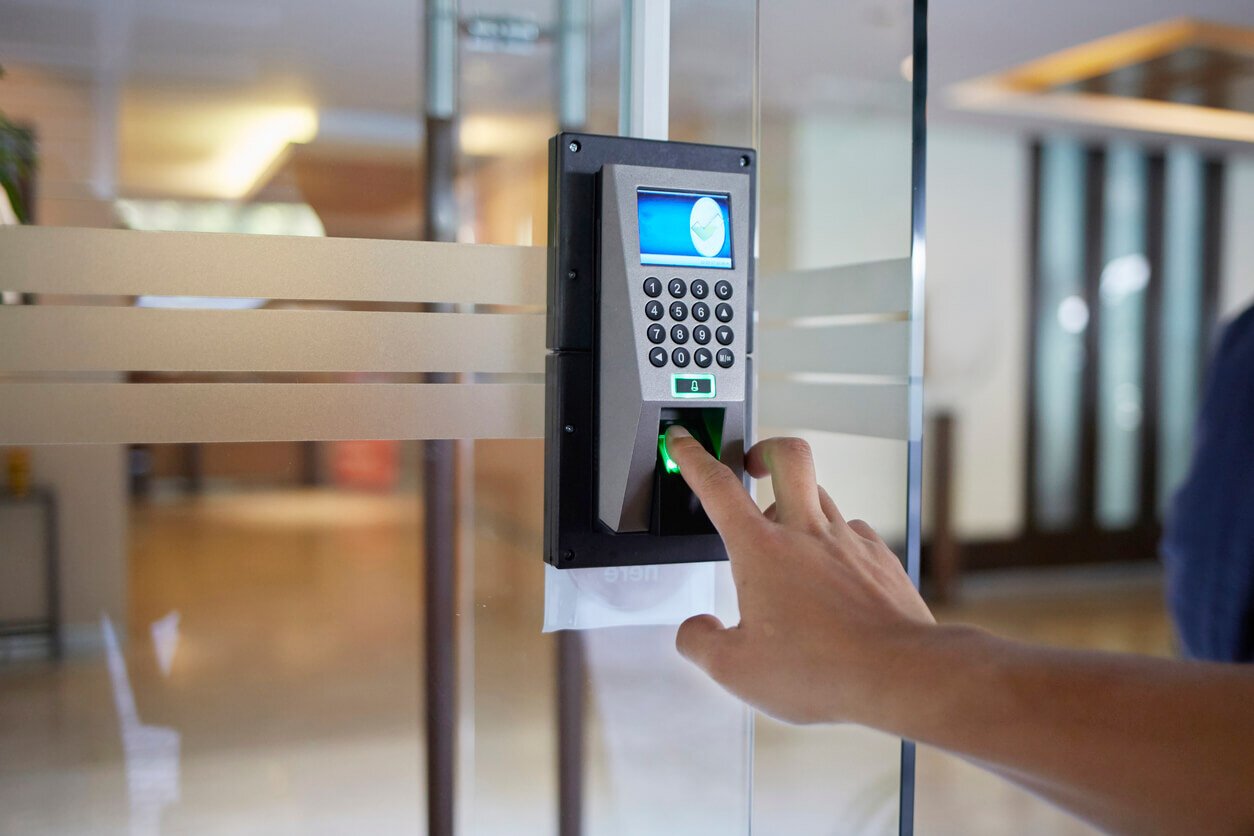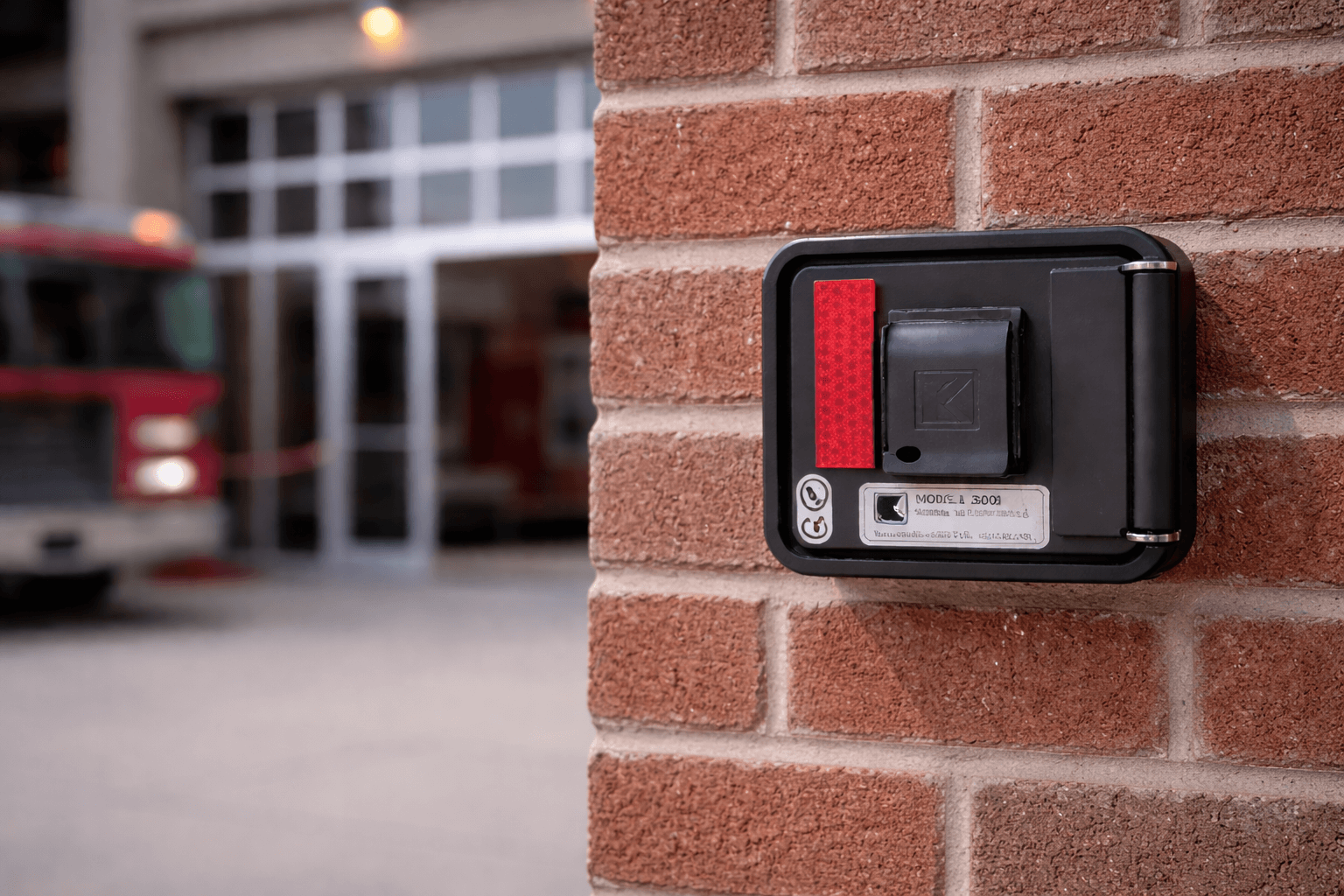What is Cloud-Based Access Control?
Cloud-based access control systems permit remote management of access to physical locations. These modern solutions are more cost effective than traditional access control methods.A technological security advancement, cloud-based access control changes how you approach your business’ security needs.
Cloud-based access control is a physical security system that enables you to remotely manage daily security functions, like door access and room restrictions, from a centralized location.
These programs function via an internet connection, and, as the name suggests, are stored in the cloud, permitting access from anywhere—an important benefit for global and hybrid workforces.
Today, we’ll explore cloud-based access control and how it can help you better secure your buildings.
What is Cloud-Based Access Control?
Cloud-based access control stores critical access information, such as who can enter a space or how many visitors are in a specific part of the building at a time.
Cloud-based access control has two core functions:
- Manage the day-to-day physical security needs of your building
- Operate the security system from a single centralized location
Both make cloud-based access control far more efficient than traditional, on-premise methods.
How Does Cloud-Based Access Control Differ From Traditional Approaches?
Cloud-based access control systems differ significantly from their traditional counterparts. Let’s explore a few key areas.
- Infrastructure: Cloud systems run, manage, and store data on remote servers whereas traditional systems store everything on site. This means that there’s less physical hardware, storage/facility costs, and ongoing maintenance for cloud services, making them more scalable.
- Access: With a cloud approach, building owners and administrators can monitor their data, manage permissions, issue credentials, and revoke access, from anywhere with an internet connection. A traditional system often requires on-site management.
- Integrations: Given open APIs, cloud-based access control systems tend to integrate with other software or systems more easily than traditional options.
- Storage and Security: With a cloud-system, companies outsource their data-storage, reducing their dependency on on-site servers. Companies can also outsource their data security, alleviating the pressure on in-house teams.
The Basics of Cloud-Based Access Control
Since cloud-based access control exists in the cloud there is no need for an on-site server to store all the data. Instead, these systems borrow data storage space from a third-party provider. But just because the data isn’t on-site doesn’t mean you can’t access it. The cloud enables authorized users to access their data anywhere, a massive benefit for global or multi-location businesses.
These systems utilize markers like biometric data and login credentials to authenticate accessors and authorize entry—all of which can be changed as security needs evolve.
Each cloud-based access control system will differ, but most share the following hardware components:
- Six to 20 GB of hard disk space
- One GHz processor speed
- Four GB of RAM
- Proprietary cell phones or tablets for Bluetooth reader access
- Any wearables needed for near-field communication (NFC) access if needed
Even with some required computer hardware to use the cloud-based systems, the cost is still often less than implementing on-site access programs because you won’t need to pay for the servers, space to house them, or an IT team to set them up and continually monitor and service them.
One speculation about cloud-based access control is that it requires internet access to function. While it does rely heavily on the World Wide Web, it isn’t fully dependent on it. A cloud-based system will work in case of a blackout or network outage, still providing safe entry and exit of authorized persons in a controlled area.
The Benefits of Cloud-Based Access Control
There are many reasons for adopting new security tools like convenience, cost, and user experience. Upgrading to a digital access control system means you could have remote door security access, managing credentials, and hands-off process management as the top benefits.
Physical security is paramount when managing a space of any size. Cloud-based access control makes managing door access more effortless than ever and keeps track of who is in a building. These are crucial when maintaining a secure environment without needing more keys or on-site security staff.
Additionally, cloud-based access control is a powerful tool because of its cooperative nature. These systems can be used with other safety or security mechanisms, such as fire alarm systems and video surveillance. Integrated access control provides more streamlined processes than just its more obvious security benefits.
- Other critical benefits of a cloud approach include:
- Strong data security protocols
- Less dependent on site-based power or connectivity
- Scalability and flexibility in managing different access levels across multiple locations
- Data filing for important information like visitor logs or credential control
Considering their scalability, it makes sense to incorporate them into a building’s security plan. These cloud-based systems can grow with your business at a much smaller cost than other security system upgrades.
Choosing the Right Solution
Like any system, each cloud-based access control system has its features to consider. Here are some to keep in mind while shopping for new systems:
- Authentication mechanisms
- Visitor or user management
- Regular backups
- Lockdown features
- Mobile access
How many features are incorporated into a cloud-based access system depends on your business's needs. That’s why the scalability of these programs is so valuable since needs can change quickly. You can easily implement new features when it makes sense for you.
Level-Up Your Business With The Cloud
What an ideal cloud-based access control system looks like differs for every business. Especially if you’re transitioning from a more traditional or on-site access protocol, cloud-based may take more getting used to. Yet these systems have stronger data security, are more scalable, economical, and are easier to implement immediate change.
When it’s time to leap to the cloud, consult the security experts at Impact Fire. Teaming up with an expert will ensure your new cloud-based access control program is tailor-made for your business.







